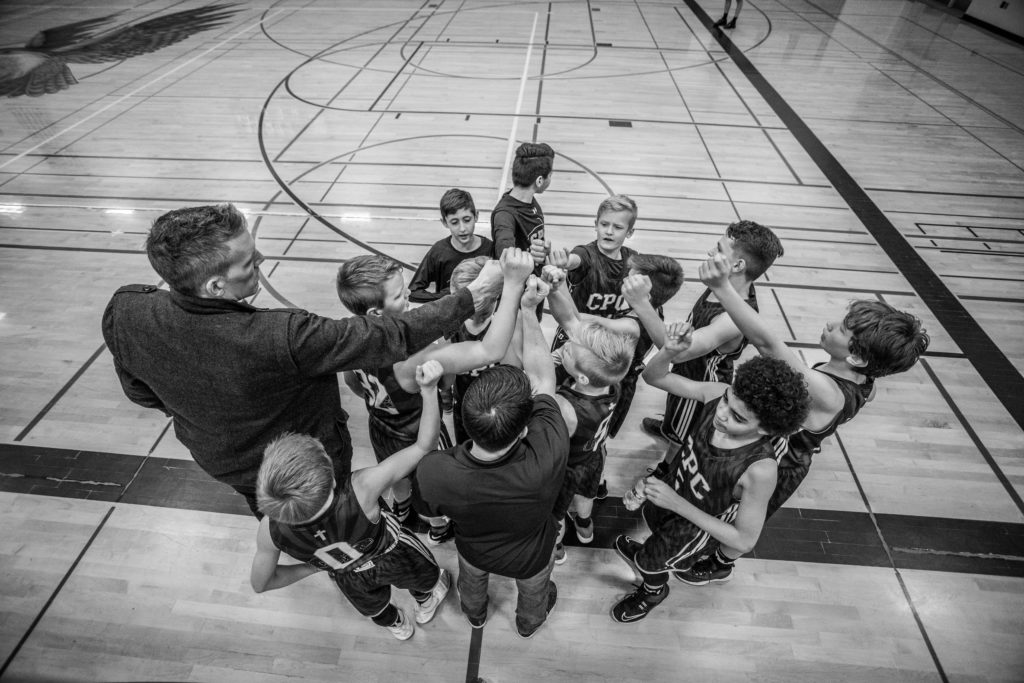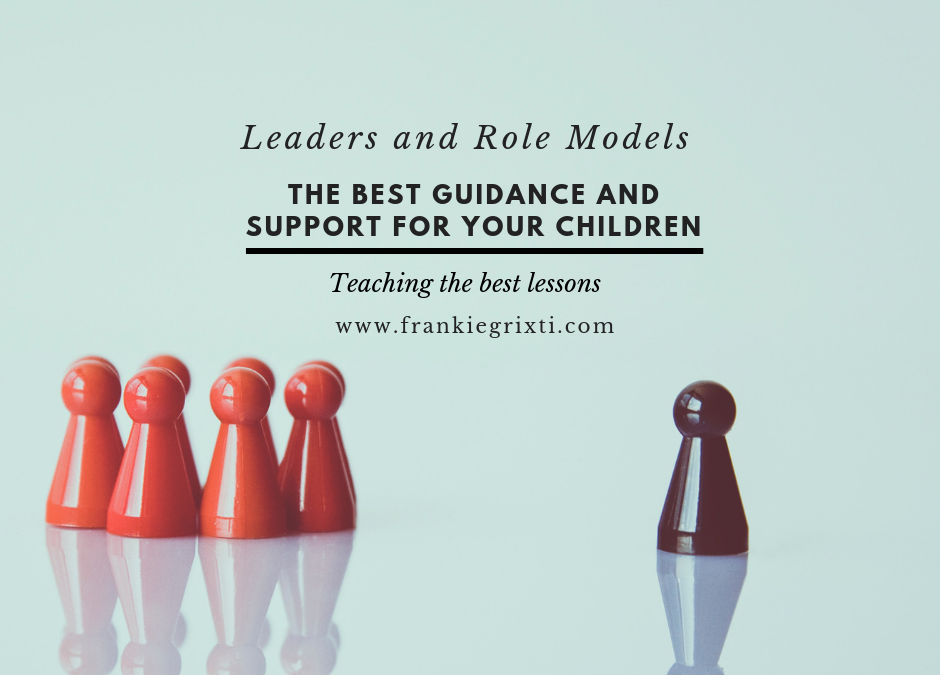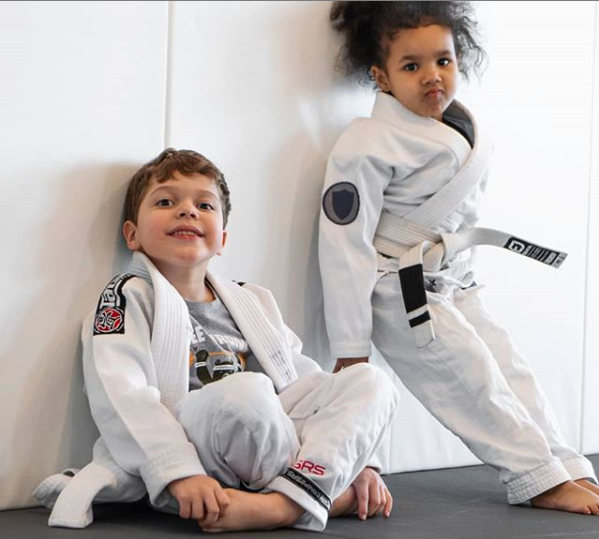The impact of role models on children
In my field, I am always thinking about what is important for a developing mind. I am consistently a big advocate for getting children involved in sports. Sports can help a developing youth in so many ways:
- Creates a community for the child to be involved in, gives them something to progress towards
- Allows for the benefits of leisure
- Provides an outlet for their energy, gives the joy of victory, and teaches the humility behind loss.
- For the sake of this post, another very important benefit is that the child will ideally develops a bond between the child and an important role model – his or her coach. (For the sake of this post, this is what we’ll be focusing on)
Does it absolutely HAVE to be sports that the child is involved in? No, of course not. Adjust to what works for your child and your family. No matter what the activity is, you should NEVER underestimate the benefit of a coach, mentor, teacher, or role model. Preferably, this person will sit in some sort of “leadership” position in the child’s life.

But what type of leadership?
1. Let’s start with INTENTION
Working with countless families, I have heard stories about both fulfilling and disappointing experiences with coaches and mentors. In my experience, the determining factor tends to be related to the intentions of the person in the leadership position. It may come as a surprise to some, but not all of the people guiding our children have selfless intentions.
Organizational politics, expectations of outcome, and reputation drive many of the programs that the youth is involved in. This impacts many people placed in roles of leading children and adolescents. Poor leaders may learn to operate in such a way that puts their own interests above the interests of the children they work with. HOWEVER, please do not confuse poor leaders with those who have high expectation of the children being guided. As a matter of fact, this is a POSITIVE quality. We want leaders that push their kids to be the best that they can be and give them their best chance at making progress towards their goals (whatever that may look like for the goals of any given individual, group, or team).
The NEGATIVE quality of many leaders comes in when they seem to operate in such a way that suggests that they expect the children to work for them – they no longer work for the children. I have seen coaches halt relationships with children that they are “butting heads with.” The outcome can lead to the child being discouraged from continuing with the activity and participating in another sport or hobby. In the worst cases, I’ve seen children withdraw from positive influencers in general and become seemingly self-destructive. The best leaders will turn these moments into learning opportunities.
In essence: LOOK FOR LEADERS WHO HAVE A PRIMARY FOCUS OF SUPPORTING THE YOUTHS OF THEIR ORGANIZATION OR COMMUNITY
2. EMPOWERMENT
The best role-models are looking to advance those that they are guiding. They will do everything possible to ensure that the outcome of being a leader is that those being guided conclude their journey in a better place than they started. Watch how they operate with the children. They should provide growth opportunities, leadership opportunities, define goals, and instill lessons for the children they lead. True empowerment of the individual will result in any individual child having a clear understanding of incremental goals they should be working. The child will also develop a comfort communicating with mentors what the challenges they may be facing in meeting those goals are. True empowerment of the group will result in all members of the the same team or group being able to provide both technical and emotional support to each other.
In essence: LOOK FOR LEADERS WHO STRENGTHEN INDIVIDUALS AND THE GROUP THROUGH COMMUNICATION, CLARITY, AND GOAL DEVELOPMENT OF THE YOUTHS OF THEIR ORGANIZATION OR COMMUNITY
3. CREATIVITY
After all, we need to find a way to keep the interest of the developing minds! In my experience, you have to be somewhat creative to engage a child or an adolescent. There has to be some element of experimentation in the activities of a team or hobby group. Without it, the children will become bored. That being said, the children need to learn the difference between “fun play time” and “focused hard work” time. There is a place for both in the group’s practices. What mini-games can be implemented to make the exercises fun for the kids? Yes, the hardest working teams usually win the most trophies. But the kids are only going to work hard if they enjoy what they’re doing.
Example
I am a member of a Brazilian jiu-jitsu gym in Hartsdale, NY (Essentials Jiu Jitsu). One day, I got to class about 15 minutes early and had the chance to watch the kid’s class finishing up before my class began. I watched the kids sparring for the first 5 minutes of my time observing. After that, they lined up to play DODGE BALL! The kids were having fun the entire class, but to finish with dodge ball was an added treat.
But wait, why would a coach of a jiu-jitsu team have the class play dodge ball? Well it:
- Allowed the kids to participate on a team for an activity (and believe it or not, even though jiu-jitsu is an individual sport, it is DEFINITELY a team community that helps you grow your capabilities).
- Is still athletic and allows the kids to get all-around exercise while switching up the routine
- Teaches hand-eye coordination
- Makes the kids want to come back because not only do they love jiu-jitsu, but they are also excited for the next time there will be a super awesome unexpected activity!
In essence: FIND A LEADER THAT KNOWS HOW TO BLUR THE LINES OF A PRACTICE TO KEEP THINGS FUN AND EXCITING FOR THE KIDS WHILE MAINTAINING THE STRUCTURE NEEDED FOR THE SPORT / ACTIVITY
Just the basics
Of course there are more great leadership qualities. A quick google search will give you all sorts of keywords: Honesty, integrity, inspiration, commitment, passion, communication, accountability, delegation, innovation. And yes, those are all very important (and I’m sure there are even more). But if you think about it, they fit like puzzle pieces into INTENTION, EMPOWERMENT, and CREATIVITY. It’s a good “catch-all” model of what to look for. Always go with your gut and get to know the reputation of the organization your child is apart of. Often times, the organizations can fill you in on why their instructors / coaches are such great leaders. Feel free to practice them as the role-models of your own household and teach the oldest siblings the concepts too – your child probably looks to family for guidance first!


